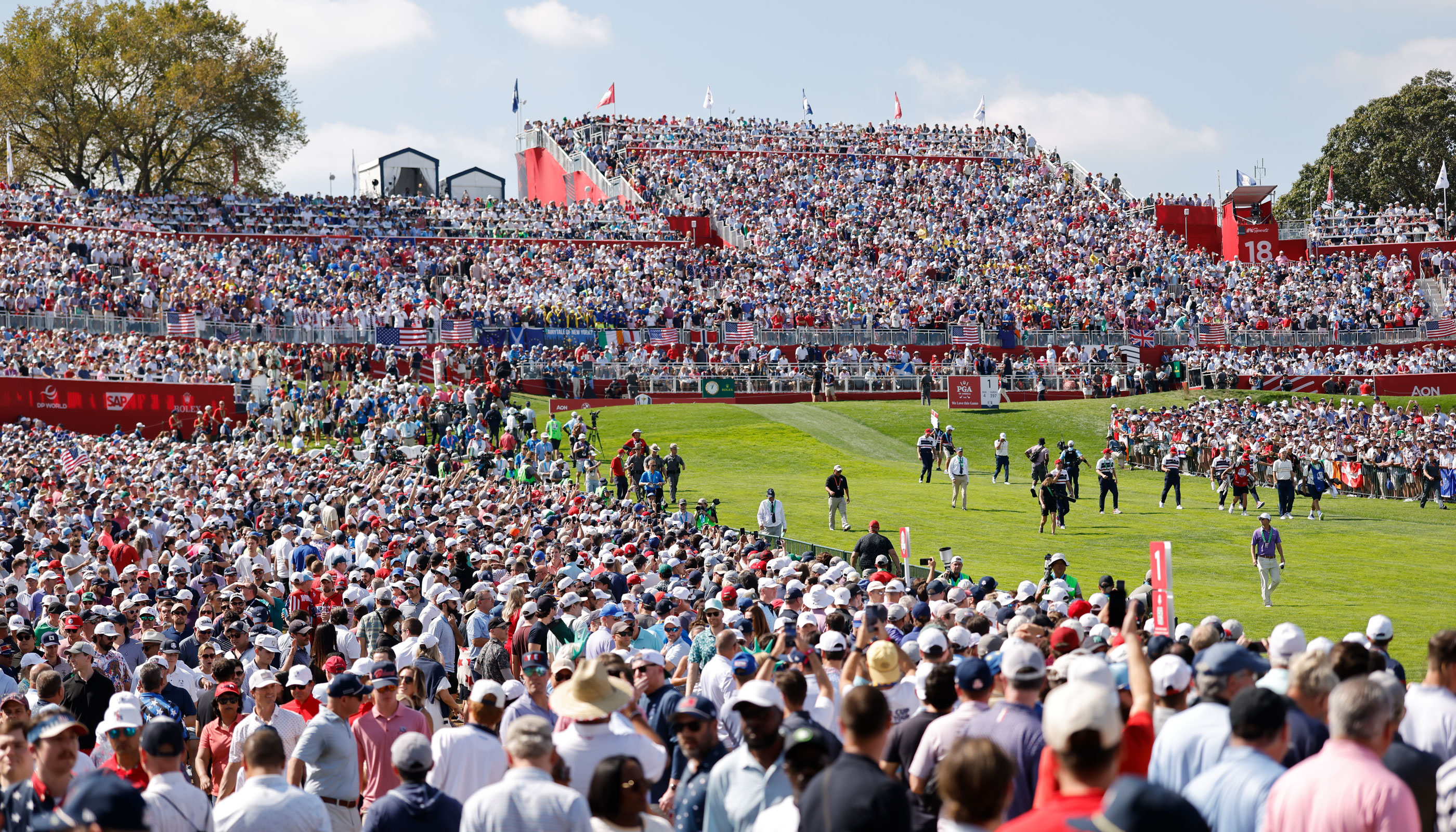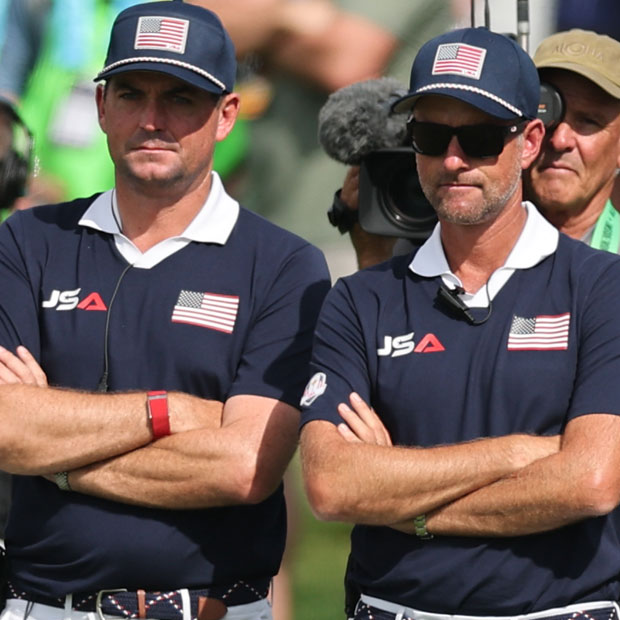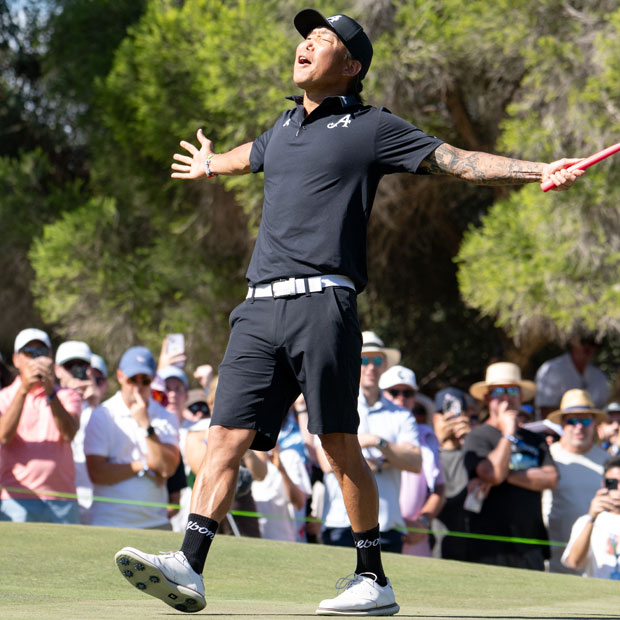Why the PGA Tour Should Not Own the Ryder Cup
This transition of power would create more problems, not solve them


The 2025 Ryder Cup at Bethpage Black left in its aftermath an onslaught of takes, with no facet of the event escaping inspection. In the wake of another American defeat and the profound embarrassment of foul crowd behavior, there appears to be growing sentiment that the PGA of America is no longer equipped to manage the behemoth the Ryder Cup has become. Perhaps, the argument goes, the event has outgrown its owners: an organization founded to support club professionals.
From there, the thought exercise shifts into pondering the event’s natural suitors. Enter the PGA Tour, a massive, well-capitalized enterprise fluent in the language of hosting large golf events and one that is presumably eager to get its hands on one of the five biggest properties in golf. “The PGA Tour should buy the Ryder Cup” is a simple, logical progression to trace, assuming the PGA of America is open to offloading its crown jewel.
It is important for the health of the sport that this transfer of power does not occur.
If the past few years in professional golf have revealed a lesson, it is how difficult it is to disrupt the hegemony of the PGA Tour. The landscape that existed before LIV Golf – one that is largely unchanged today – was inherently anticompetitive. Luring talent from the PGA Tour required an absurd outlay of money and committing a war chest of resources to fight an ecosystem designed to funnel talent in one direction: to the PGA Tour. The Official World Golf Ranking – on whose board the PGA Tour occupies a seat – remains a key cog in the machine.
{{inline-article}}
So-called defectors who left for LIV were effectively shut off from accessing OWGR points, thereby reducing pathways into major championships. Henrik Stenson was stripped of his Ryder Cup captaincy. LIV golfers, even those who never held PGA Tour membership, continue to serve suspensions for playing LIV events. Sure, players made their decisions with full awareness of the potential ramifications, all of which may be deemed justified. But whether or not the punishments fit the so-called crimes is a separate matter. What isn’t debatable is that the configuration of the professional golf world has not fostered an economically competitive environment.
Prior to LIV’s arrival – and perhaps still today – male professional golfers consisted of two classes: PGA Tour players and aspiring PGA Tour players. Every element of the professional golf infrastructure, from the mechanics of the OWGR to PGA Tour purse sizes to the DP World Tour’s official status as a feeder tour, has reinforced the power structure. Ownership of the Ryder Cup would only arm the PGA Tour with another lever it could pull to tighten its grip on the labor force.
The Presidents Cup, a PGA Tour-owned property that even the most golf-crazed fans in the world struggle to feign interest in, does not allow the participation of LIV golfers. Is banning LIV golfers, including some of the best current international players in the world, in the event’s best interest? Of course not. Does it serve the Tour’s interest, deterring defectors and condemning them to the obscurity of playing for an audience of LIV Golf Plus app users? Debatably yes.
Should the PGA Tour take ownership of the Ryder Cup, there is no indication that the Tour would impose a ban on golfers who dwell outside the boundaries of strategic alliances. History would suggest, though, that a ban is not out of the realm of possibilities. More practically, it is easy to envision subtler mechanisms being put in place to achieve a pseudo-ban. A points qualification system that heavily rewards performance in PGA Tour events, for example, would sufficiently disadvantage those with the gall to compete on an unaffiliated tour.
The 2025 Ryder Cup was enriched by the participation of Jon Rahm, Tyrrell Hatton, and Bryson DeChambeau, all indisputable world-class talents under contract with LIV. Tour affiliation has long been a factor in Ryder Cup eligibility, but much of the Ryder Cup’s magic comes from transcending where a player’s fealty lies. It is an opportunity to watch the 12 best American golfers pitted against the 12 best Europeans. The closer the event adheres to the purest version of that definition, the better its chances of preserving its soul.
Placing the Ryder Cup under the PGA Tour umbrella might make sense to the suits gathered in a conference room in Ponte Vedra or an Omni ballroom in Frisco. But professional golf is much bigger than the PGA Tour and must be given the space to breathe outside its control. For the good of the sport, and for the sake of competitive balance, the Ryder Cup should remain far beyond the PGA Tour’s reach.

Leave a comment or start a discussion
Engage in our content with thousands of other Fried Egg Golf Club Members
Engage in our content with thousands of other Fried Egg Golf Members
Get full access to exclusive benefits from Fried Egg Golf
- Member-only content
- Community discussions forums
- Member-only experiences and early access to events













Leave a comment or start a discussion
Lorem ipsum dolor sit amet, consectetur adipiscing elit. Suspendisse varius enim in eros elementum tristique. Duis cursus, mi quis viverra ornare, eros dolor interdum nulla, ut commodo diam libero vitae erat. Aenean faucibus nibh et justo cursus id rutrum lorem imperdiet. Nunc ut sem vitae risus tristique posuere. uis cursus, mi quis viverra ornare, eros dolor interdum nulla, ut commodo diam libero vitae erat. Aenean faucibus nibh et justo cursus id rutrum lorem imperdiet. Nunc ut sem vitae risus tristique posuere.